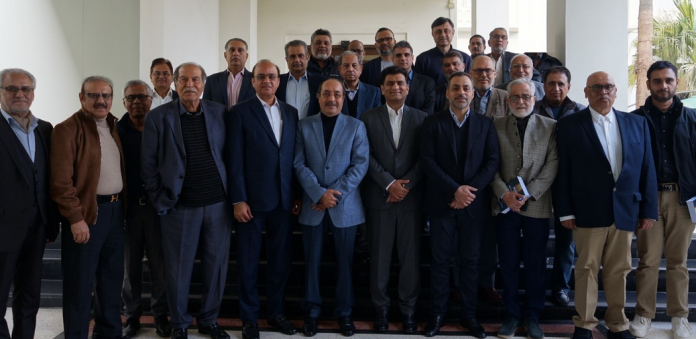LAHORE, DEC 21 (DNA): The value-added export-oriented textile industry should be given the top priority of the government, providing them maximum facilitation to meet their exports requirements. The government needs to establish long-term and sustainable policies in consultation with the real stakeholders to enhance exports, increasing foreign exchange earnings for the country. Presently, the high cost of doing business has proved to be dangerous for the export-oriented apparel industry, as the ever-increasing energy, gas and power tariffs are the real threat to the economy amidst high markup rate and continuous fluctuations exchange rate.
These views were expressed in an interactive session jointly organized by Pakistan Hosiery Manufacturers and Exporters Association (PHMA) and the Pakistan Readymade Garments Manufacturers and Exporters Association (PRGMEA) here at a local hotel to review the challenges faced by the exporters.
The meeting was attended by PHMA North Zone Chairman Abdul Hameed, Dr. Khurram Anwar Khawaja, Shahzad Saleem Asghar, Ashar Khurram, Shahid Butt, Dr. Khurram Tariq from PHMA and Ijaz Khokhar, Sohail Sheikh, Dr Ayyazuddin, Sajid Saleem Minhas and Mubashar Naseer Butt from PRGMEA, besides the apparel industry’s representatives from Lahore, Faisalabad and Sialkot.

The participants of the meeting asked the government to take prompt measures to bring down the production costs for the export industry to enable them to compete in the international market.
PHMA North Zone Chairman Abdul Hameed said that the export industry is currently having difficulty to compete the global market because of rapid increase in production costs. He said that the high cost of production is not good for our exports.
Abdul Hameed said that high energy tariffs, growing rates of taxes, and lack of skilled labor are the main reasons behind the increase in the cost of production. Manufacturing and production industries have the potential to significantly impact economic growth by reducing unemployment in the country.
“We are the biggest employment generators and largest exporters, contributing two-third of textile exports and one-third of country’s total exports. The apparel sector has an immense potential to create jobs with comparatively low investment and less energy needs, as it generates four times the employment at one-fourth of the energy consumption compared to other textile sectors.”
The chairman said that Pakistan’s industry is struggling in the international market due to challenges such as high inflation, political instability, increased power tariff, rising fuel costs, energy shortages, and lack of R&D.
An effective strategy is needed to improve the performance of the industrial sector. The government should facilitate exporters by providing a level playing field to them in terms of business costs, particularly in utility pricing, he suggested. He said Pakistan’s economy, particularly small and medium-sized enterprises (SMEs), is struggling to cope with the current economic crunch, and needs support. Rather than providing subsidies or waivers, the industries are being burdened through rising production cost. The burden of surging oil prices in the international market is immediately transferred to consumers by the government, but the process of reducing prices is always very slow, he noted.
He asked the government to work on a fast track plan to address expansive energy issue and priority should be given to the value-added textile industry in this regard.
The chairman urged for increasing ease of doing business, lowering cost of production, paying early refunds to solve liquidity crunch, relaxing import policy for industrial raw material, and equalizing the energy tariff across the country.
He said various provincial departments, including EOBI, Social Security, Women Welfare, Environment Department etc were playing a negative role and treating the manufacturers and exporters like criminals.

















